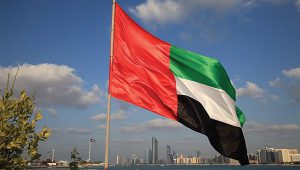DUBAI / WAM
The UAE highlighted the significance of complying with international work standards and developing partnerships that empower countries to overcome the future challenges of the labour markets across the globe and their ever-changing landscape, stressing that it is critical to guaranteeing the rights of employers and employees alike.
Dr Abdulrahman Al Awar, Minister of Human Resources and Emiratisation, said training to advance the employees’ skills is critical to enhance their contribution to sustainable development efforts and create more job opportunities.
Al Awar’s made these comments during his address at the G-20 Labour and Employment Ministers’ meeting in Bali, Indonesia recently. During the meeting, participants discussed priority employment-related policies and social issues to develop policies to create more
job opportunities, reduce unemployment and empower women. The minister, who led the UAE delegation at the meeting, said fortifying international cooperation is an urgent necessity to protecting employees across the globe and safeguarding their health and safety, as well as addressing unemployment and reducing unbalanced employment relations, inequality and discrimination that employees may be exposed to.
He called for establishing a modern and flexible regulatory and legislative environment
for the job market, which “would enable business owners to adapt to global economic changes.†Al Awar thanked Indonesia for inviting the UAE to participate at the G-20 Labour and Employment Ministers’ meeting, adding that he is looking forward to studying member countries’ policies of developing global, comprehensive and fair employment policies that focus on the human element. He also thanked the Republic of India, which will hold 2023’s presidency of G-20 for inviting the UAE to participate in the upcoming meeting.
“The G-20 helps refine those policies, to benchmark the work that we do and identify others with whom we can build constructive and mutually beneficial partnerships,†he said.
Al Awar highlighted the speed of the UAE’s recovery and its overcoming of the Covid-19 repercussions, which “stems from the clear and insightful vision of the wise leadership of our country in dealing with it, and the effective health, preventive, economic and social programmes, the presence of a young workforce and an advanced digital infrastructure.â€
“The UAE has recently introduced several new policies focused on addressing the rapidly changing challenges facing the labour market, including the Federal Decree Law No. 33 of 2021, regulating employment relationships for all establishments, employers and employees in the private sector,†he said. “We have leveraged the power of technology to ensure that People of Determination can participate effectively in the economy. We have built online platforms to encourage lifelong learning and implemented a new insurance-based unemployment scheme coming into force as of early January 2023, designed to protect those most vulnerable to an economic shock, while maintaining the talent pool available to our private sector.â€
The G-20 is a crucial forum for international economic cooperation and includes leaders from all continents. It plays a strategic role in promoting global economic growth and future prosperity, as members represent more than 80 percent of global GDP and 75 percent of international trade, with approximately 60 percent of the world’s population living in the member countries.
The G-20 Labour and Employment Ministers’ meeting discusses matters related to general policy for the member countries and the world, such as promoting women’s employment, gender equality in the labour market, work patterns in the age of digitalisation, social security systems, facilitating the transition and preparation of youth from education to the employment.
This year, Indonesia held the presidency under the theme “Recover Together, Recover Stronger”. It addressed priority issues, such as global health, digital transformation and sustainable energy transition, to encourage a balanced recovery of the global economy, a stable and resilient monetary and fiscal ecosystem and create an inclusive and sustainable foundation for growth.
 The Gulf Time Newspaper One of the finest business newspapers in the UAE brought to you by our professional writers and editors.
The Gulf Time Newspaper One of the finest business newspapers in the UAE brought to you by our professional writers and editors.
